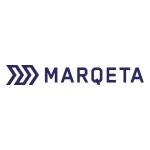New Marqeta survey shows that 68% of people surveyed in the UK are more concerned about fraud since the start of the pandemic, with 79% believing banks should more accurately predict fraudulent transactions
LONDON–(BUSINESS WIRE)–Marqeta, the global modern card issuing platform, today released the annual findings of a survey of more than 2000 UK and US consumers, looking at their attitudes and experiences regarding financial fraud. The survey revealed that COVID-19 has been hugely impactful, with 68% of UK respondents reporting being more concerned about fraud since the start of the pandemic. Almost 1-in-5 (19%) of UK adults surveyed by Marqeta reported becoming first-time victims of fraud in the last 12 months, a significant increase from last year’s findings from Marqeta’s 2020 Fraud Report. This figure rises to 31% among 18–34-year-olds. Under this heightened concern, UK consumers feel banks need to do more to protect their customers, with four-in-five (79%) UK respondents saying they believe their bank should be able to more accurately predict when a transaction is fraudulent, and 63% admitting they are concerned about their bank’s ability to spot fraud.
Marqeta’s survey also found that 65% of UK respondents said they do not believe that the risk of fraud is a fair trade-off for the convenience of a more seamless and digital economy. Other key findings from the report include:
- More than four in five (84%) UK respondents said they shop online now more than ever before, while 74% said they think shopping online puts them at higher risk of fraud.
- Sixty percent said they have noticed more phishing attempts to steal payment details over the last 12 months.
- Almost one third (32%) of UK respondents said they worry about entering card details online regularly, whilst 22% said they worry about it every time they make a transaction.
- Eighty-five percent of UK respondents said they are happy for online transactions to take longer and have extra steps if it significantly reduces the risk of fraudulent activity on their account.
“Earlier this year, the Royal United Services Institute (RUSI) warned that fraud in the UK had reached ‘epidemic levels’. The findings of this year’s annual fraud survey appear to reflect this, with worrying numbers of people falling victim to fraud,” comments Ian Johnson, SVP, Managing Director Europe, Marqeta. “It’s understandable that consumer concern around banks’ ability to fight fraud is high. It will be vital that banks keep pace with this ongoing threat, and have the infrastructure in place to authenticate transactions and spot fraud as fast as possible. This will mean utilising tools like modern card issuing to give banks the digital context and data needed to make real-time, intelligence-driven decisions on authenticating transactions.”
The survey also found that 80% of UK respondents said they believe that the new £100 contactless limit, rolled out in March 2021 as part of the annual budget, puts cardholders at higher risk of fraud if their card is lost or stolen. This is a valid concern, as the most common figure for fraud appears to be between £45-£100, with the survey finding that 79% of cases fall into this bracket. Faced with this level of threat, many UK adults believe that increased cautiousness is vital. Nearly half (48%) of UK respondents say they’re trying to be more careful (although admit they could do better) and 43% say they’re very careful. Despite this, the data suggests that UK citizens could be doing more:
- More than a quarter (28%) of UK respondents said they lose a credit/debit card at least once a year.
- More than a third (36%) of UK respondents who reported being victims of fraud said they did not know the card was missing when the transaction occurred.
- Eighty-six percent said they always cancel their lost or stolen card, but only 41% said they cancelled their lost or stolen card immediately. However, this is still an enormous improvement from last year where just 23% said they cancelled their lost or stolen card immediately.
- Noticing quickly when a card is missing is critical: 89% of those who reported experiencing fraud on a lost or stolen card said fraudulent transactions took place within the first 30 minutes.
“The new £100 contactless card limit certainly raises extra security concerns for physical cardholders,” continues Johnson. “The problem is, while convenient, the new limit makes it significantly easier for fraudsters to steal larger sums of money in a single swoop – or tap. When you consider how many of us tend to lose our cards and either forget, or put-off, cancelling it, it makes sense to consider the other options available to us. Digital wallets and virtual cards, for instance, offer all the convenience of contactless cards but with far less security risks – they often have no spend limit and are also protected by the phone’s built-in biometrics. With more than 80 percent of UK adults owning a smartphone, rolling out digital payments at scale seems to be the next obvious step to help protect consumers’ finances.”
Download the full report here: https://www.marqeta.com/uk/2021-fraud-report
About Marqeta
Marqeta is the global modern card issuing platform empowering builders to bring the most innovative products to the world. Marqeta provides developers advanced infrastructure and tools for building highly configurable payment cards. With its open APIs, the Marqeta platform is used by leading European fintechs like Capital on Tap, Lydia and Twisto, who want to easily build tailored payment solutions to create best-in-class experiences and power new modes of money movement. Marqeta is headquartered in Oakland, California, is enabled in 36 countries globally and has offices in London, United Kingdom and Melbourne, Australia. For more information, visit www.marqeta.com, Twitter and LinkedIn.
Contacts
Robert Fretwell
Spark Communications for Marqeta
0207 436 0420
marqeta@sparkcomms.co.uk

